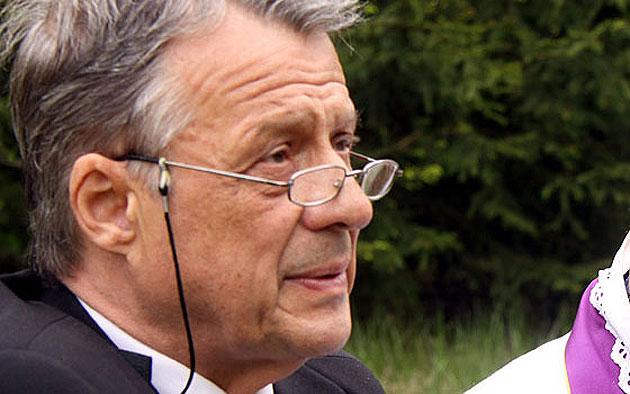Petr Uhl, dissident in communist Czechoslovakia, human rights defender and journalist, has passed away

Yesterday the commentator and journalist, communist-era dissident, political prisoner and signatory of Charter 77, Petr Uhl, who defended human rights during the communist regime and after the Velvet Revolution, passed away at the age of 80. His wife, the former Public Defender of Rights Anna Šabatová, informed the Czech News Agency of his passing.
Mr Uhl was one of the most prominent figures of communist Czechoslovakia’s dissident movement and remained involved in public affairs after the 1989 Velvet Revolution. At the beginning of the 1990s he led the Czechoslovak Press Agency and also worked as a commentator for the daily Právo newspaper until 2015, when he stopped contributing there.
After 2015 he wrote for the online Deník Referendum publication and others, including news server Romea.cz. He was an activist with Charter 77, which he co-founded and signed, and was also involved with the birth of the Committee for the Defense of the Unjustly Prosecuted (VONS).
After the Velvet Revolution of 1989, he joined the work at Civic Forum (Občanské fórum – OF) and was elected on their ticket in 1990 as a member of the Left Alternative to the Chamber of Nations in the Czechoslovak Federal Assembly. In the 1990s he was a member of the Civic Movement (Občanské hnutí), and after Czechoslovakia split into the Czech Republic and Slovakia in 1993, he became a Green Party member from 2002 to 2007 and ran unsuccessfully for the Chamber of Deputies in 2006.
From 1998-2001 Mr Uhl served as Czech Government Human Rights Commissioner as well as the chair of the Council for Nationalities, the Human Rights Council, and the Interministerial Commission for Romani Community Affairs; he was also the Government’s Deputy for Human Rights. During that time he was a significant protester against the building of a wall on Matiční Street in the Czech town of Ústí nad Labem to separate non-Romani and Romani residents.
Mr Uhl never made any secret of his left-wing positions and held opinions that were not always popular in the Czech Republic, for example, on the issue of the postwar deportation of ethnic Germans who were citizens from liberated Czechoslovakia. “I consider that so-called transfer to have been an expulsion which, in the conditions of a Czechoslovak state that wanted to be a democracy, could not be justified by the crimes of Nazism,” he said 13 years ago when he received the Charles IV Prize from the Sudeten German Compatriots’ Association.
In 1969, Mr Uhl was imprisoned for the first time as a representative of the Movement of Revolutionary Youth, with which some students at Charles University’s Faculty of Arts in Prague were particularly involved. In 1971 he was sentenced along with others in one of the first political show trials after 1968 to four years without parole for “subversion of the republic”.
After his release, he worked among other things as a planner and at the close of 1976 joined the circle of the authors of Charter 77 and became one of its first signatories. Not long afterward he co-founded the Committee for the Defense of the Unjustly Prosecuted (VONS).
It was exactly for his activity in VONS that Mr Uhl was convicted a second time, serving a five-year prison sentence in Mírov and in Vinařice. After his release, he worked until his next arrest as a stoker.
He was imprisoned for a final time on 19 November 1989 for spreading news about the alleged death of a student during the demonstration in Prague that launched the Velvet Revolution. His prosecution was stopped one week later.
Mr Uhl was awarded many state honors during his lifetime, such as the Medal of Merit First Degree in 1998, bestowed by Czech President Václav Havel, as well as high honors from France, Germany and Poland. In 2018 he was given the 2017 Opus Vitae Prize in the Karel Havlíček Borovský Journalism Awards for his lifelong advocacy of human rights and justice and for personal bravery.